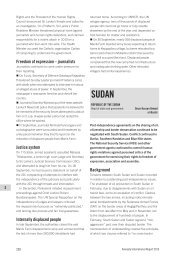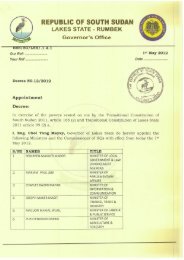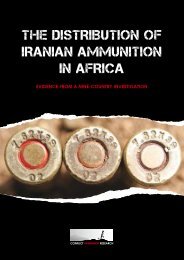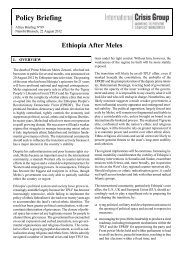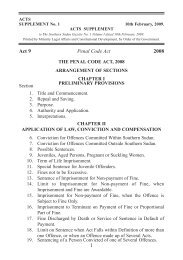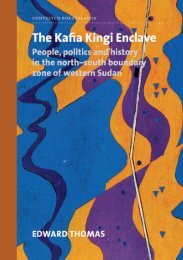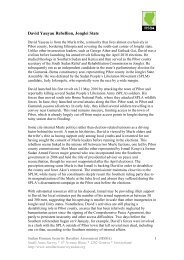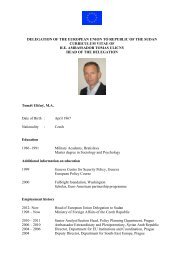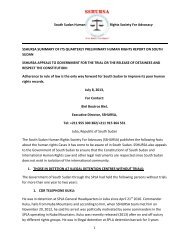THE SUDANESE HUMAN RIGHTS QUARTERLY - Sudan Tribune
THE SUDANESE HUMAN RIGHTS QUARTERLY - Sudan Tribune
THE SUDANESE HUMAN RIGHTS QUARTERLY - Sudan Tribune
You also want an ePaper? Increase the reach of your titles
YUMPU automatically turns print PDFs into web optimized ePapers that Google loves.
We Suggest a Fair SettlementTo solve the conflict between the Gazira landlords and the Government,it is a must to abrogate the Gazira Act 2005. The settlement isbased on these proceedings:1) The <strong>Sudan</strong> Government should pay all unpaid rent starting the year1967 up to the year 2007 (40 years), using the price that had been proposedby the Gazira Land Settlement 2003.2) The principal of settlement must be based on al-Ijara (land rent),not on land sale or dispossession of the landlords from the land “for thepublic good.”3) The landlords and the farmers must be fairly compensated by agreeablerates when land is not used for agriculture (oil industry, etc.).4) The landlords shall be represented in the Farmers’ Federation at thefederal and the section levels to be able to take care of the interests oflandlords and the perseverance of their financial, legal, and civic rights.The Financing problemGovernment financing has continuously suffered instability in responseto changes of production relations. But the government financingin all conditions played a role in the continuity of agricultural activities inthe Scheme.The native financing runs via the personal resources of the farmer orthe merchants by what is known as the Shail (pre-harvest borrowing),which generates profits for the lender up to a total of 100% of the crop’svalue. This is a big burden on the farmer.The government financing was supportive of the cotton and wheatproduction by 7 to 9 interest rate in the collective and individual accountsof the Scheme, in addition to 9% interest rate on the ginning of cotton.The dependency on foreign loans increased the credits reaped from thefarmer and the profits of the lending banks that sometimes amounted to57%. These accumulated debts, which are not real debts, added morehardships to the lives of farmers.12<strong>THE</strong> <strong>SUDANESE</strong> <strong>HUMAN</strong> <strong>RIGHTS</strong> <strong>QUARTERLY</strong>An ad hoc publication issued by the <strong>Sudan</strong> Human Rights Organization - Cairo



